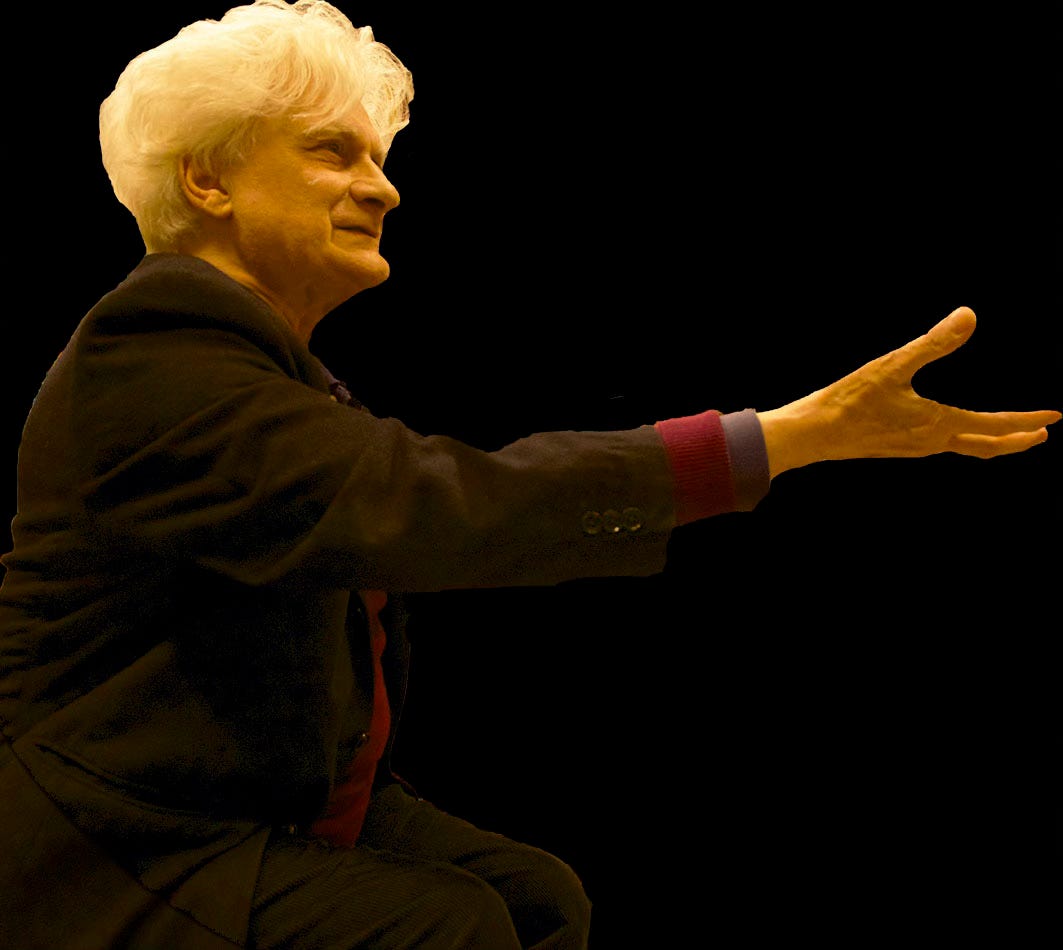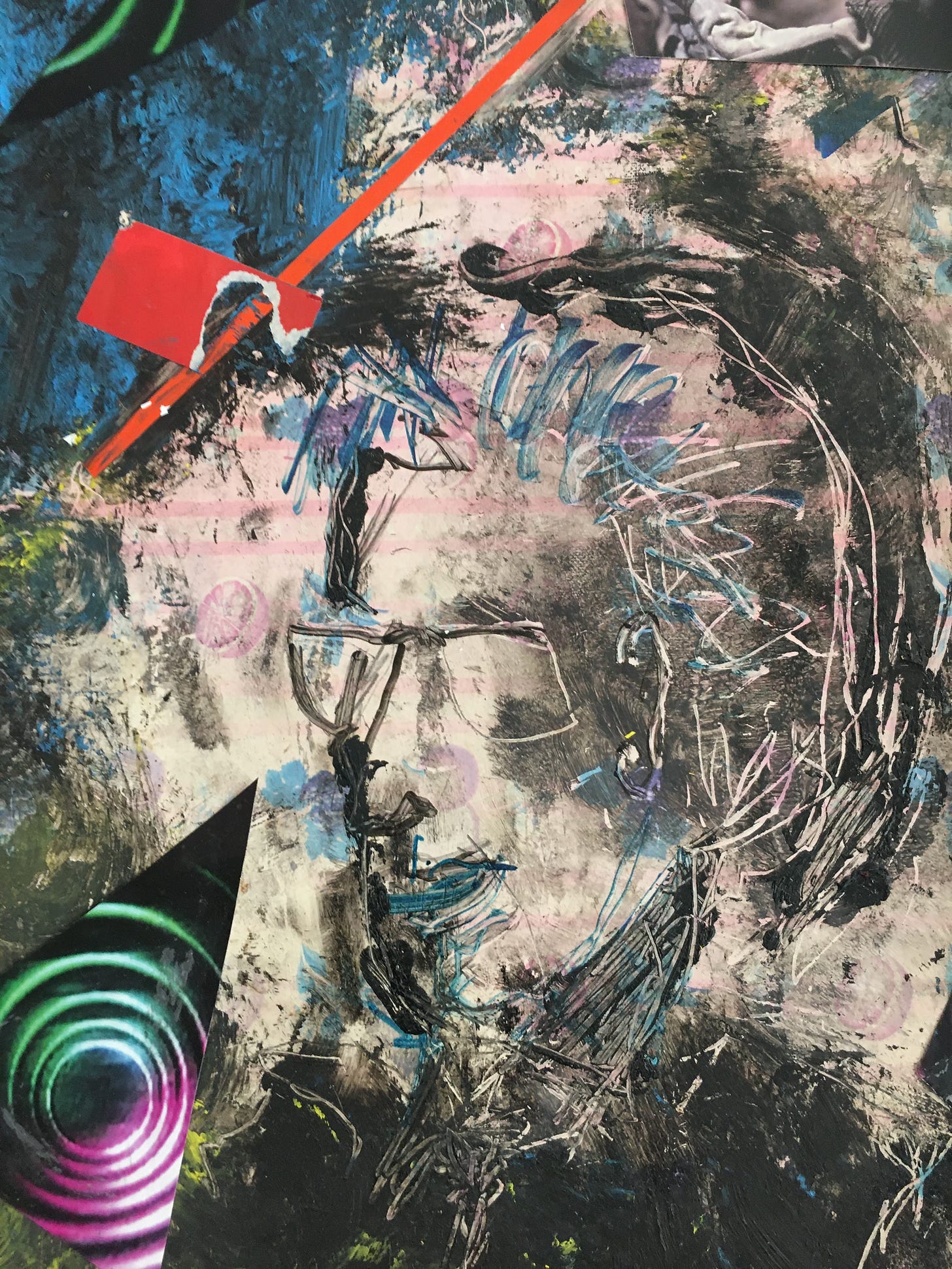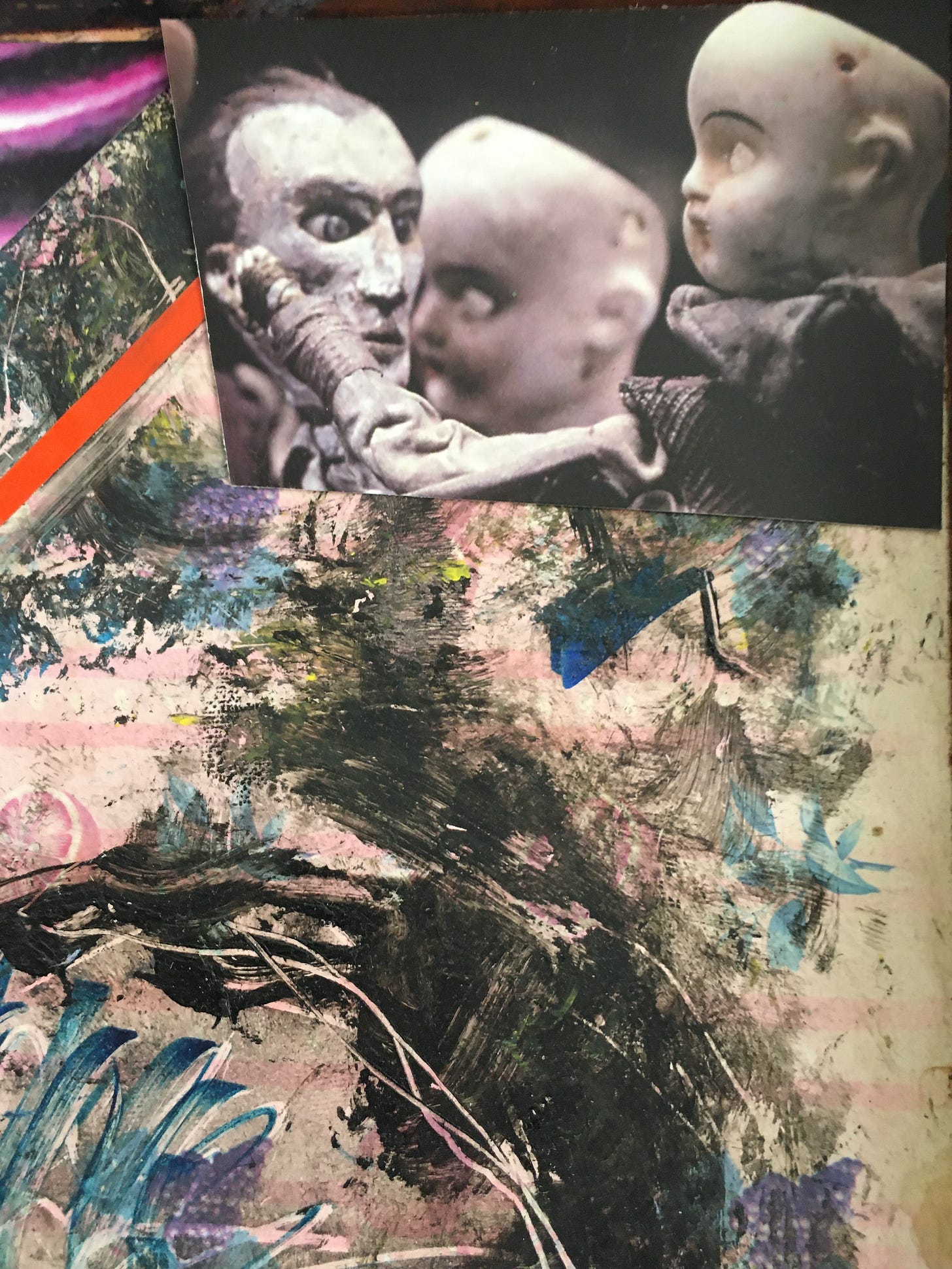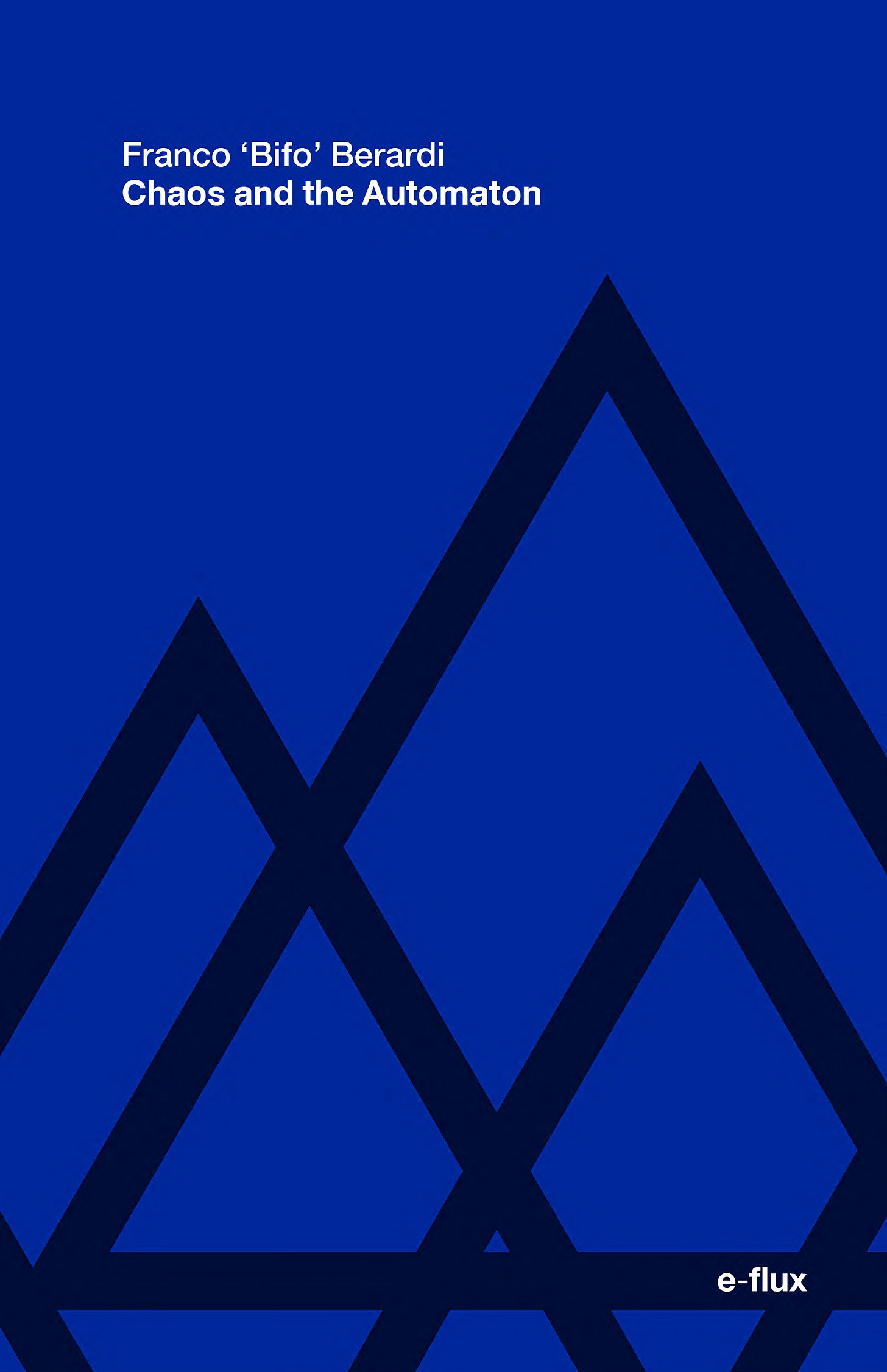The poet and the engineer
My collaboration with e-flux. A conversation with Brian Khan Wood at the Haus der Kulturen der Welt. Haus der Kulturen der Welt, Berlin, June 13th 2025
The conversation between Brian Kuhn Wood and Franco Bifo Berardi starts at the minute seven of the audio- recording:
https://drive.google.com/file/d/10eYZ5UMh9vwF9zcCDrb-Tpei_gLIJjYV/view
_____________________
_________________________
ISTUBALZ, 2003
_________________________
when the last chance was missed
Berlin, June 13th 2025
BRIAN KUAN WOOD
1. “I know that it is dangerous to write in simultaneity with events that cannot be precisely foreseen, that can only be vaguely intuited, but the only way to imagine something about the becoming of the psycho-sphere is to run ahead of the dynamics of the disaster.”
The quote is from The American Abyss, which we published in the September 2020 issue of e-flux journal. Today we seem to be surrounded by multiple disasters and a climate of extreme hostility. Can you share some strategies for this kind of vanguardist mode of thinking and writing? Or to ask the question more generally: How are you? How have you been?Bifo
I’m not in great shape, actually. But who cares about me? I am not an interesting subject. I may be perhaps a symptomatic subject. My unusual diseases are prophetic insights.
First of all I remind you that my collaboration with e-flux started in 2010. I received a message from Anton Vidokle, who asked me to write a text for the magazine. I did not know the magazine, in that time, but the message by Anton was so kind that I decided to say yes. And I wrote a text titled Cognitarian subjectivation that was published in e-flux number 20, in November 2010.
Then I came to befriend the e-fluxers, I realized something of their origins and of their actions. Over the years I’ve been writing for many magazines around the world, but e-flux was special: a link between aesthetics and social movement.
Artists, poets the harbingers of a possible Internationale of our time: the Internationale of cognitive workers.
It was fifteen years ago. I was already an old person, I was sixty years old. Not so old, but old enough. Nevertheless in those years I still believed in the possibility of an alliance, a marriage between the poet and the engineer. This was my idea, my intuition, my hope, if I may say.
Then came the years of Occupy. The Acampada in Spain, Tahrir square in Egypt, the Arab Spring….
It was possible again to imagine a future in the autonomy of the collective mind, outside of the corporate governance. But this window of possibility did not last. The Arab spring evolved into a nightmare.
I realized that my previous intuition had been wrong. Then I discovered that, like Auden said: Poetry makes nothing happen.
Occupy was an attempt of the poet to heal the soul of the engineer. This attempt failed.
Poetry has not the power to heal the suffering soul of the engineer.
You know, the engineer is a very suffering person.
I spent many years working together with engineers. Sometimes they are funny people, sometimes interesting people, but they are suffering because of the separation between their mathematical mind and their living body. But I had this idea that the engineer could be healed by poetry. You engineers will be healed by me the poet, and together we will change the world.
We have changed nothing. The world changed itself for the worst.
Now we know that the poet, as usual, does nothing, while the engineer is building the horrible kingdom that Gunther Anders imagined sixty years ago, when he said that the Hitler’s Reich has only been an experiment, and the real Reich will come when Nazism will marry with technology.
We are in this point, we are in this kingdom: the kingdom of eternal Nazism. Nazism and technology together are destroying any possible imagination of a human future.
In 77 Sid Vicious screamed that the future is dead.
Now it is true.
_____________________
_______________________
The Automaton
BRIAN KUAN WOOD:
2. In the essay “General Intellect and the Termination Machine,” you describe AI in combination with the techno-financial and military systems as giving birth to an “ungovernable automaton.” Can you tell us about the Automaton in the title of the book?
Bifo:
The idea of a marriage between the poet and the engineer was not so new. It was an old idea, proposed by Marx in his most important text, in the Fragment on Machines: technology can become a tool for liberation. Technology is nothing in itself. It is what our culture our imagination, our sensibility manage to do of it.
Sensibility is not only a passive perception of something that is around, but also a way of elaborating we are, what we do. In this sense the meeting of technical intelligence and sensibility was a possibility.
Occupy was a massive experience, and it was an experience that involved poets and engineers. But it did not last, and the poet and the engineer went two different ways.
What is the automaton? I see the automaton as a cognitive automaton, as the other face of chaos. Before answering the question: what is the cognitive automaton we must answer the question: what is chaos?
Chaos is nothing, there is no chaos somewhere in the world. Chaos is not an existing entity. Chaos is a relation, it is the relation between the speed of our brain elaboration and the speed of the surrounding environment, particularly of the information environment, of the info sphere.Well, this is chaos: an acceleration of the rhythm of the infosphere. The jeopardize mental activity: human mind is unable to process in a conscious way the hyper-stimulation.
The automaton is replacement of our intelligence by automatisms, by protocols, algorithms, procedures that we cannot avoid if we want to do what we have to do. If we want to survive we have to accept that kind of automatisms that make survival possible.
This is the automaton. We are heading towards total automation of the relation between natural dementia and artificial intelligence.
Human history has no more sense. It’s just the demented residual of the automated universe of death.
___________________________
ISTUBALZ 2021
___________________________
Fascism as senile dementia
BRIAN KUAN WOOD:
3. In the interview with Andreas Petrossiants that opens the book, you pinpoint how political impotence can fuel “mass humiliation and reactionary rage, pushing the social brain into a whirlwind of madness: racism, nationalism, fascism, expressions of psychopathologies that were no longer marginal or fringe.” Is this not already familiar to us as the formula for fascism? Or is today’s techno-financial machine even more sophisticated—more efficient yet also more volatile?
Bifo:
We use the word fascism because of our lack of imagination, we have not been able to invent a better term to define…. What? The comeback of racism, the comeback of genocide in the history of the world, and the unchained destruction of sensibility, of humanity, by the brutalism of power.
In Dark Forest, a novel of the Chinese SF writer Liu Cixin, the bad guy of the story called Thomas Wade, utters a sentence that I cannot forget: If we lose our humanity we lose something, but if we lose our bestiality we lose everything.
It is crystal clear in the history of our time: only ferocity can give us the possibility to survive. How can we explain that the world is watching the systematic destruction of humanity sentiments by a state like Israel? How can we accept the idea that a national state that has been created outside of the international law since the beginning, is now destroying any possibility of trusting in law, of trusting in reason. How can we accept this negation of humanity that is called Israel?
We accept this because we know that humanity means nothing. Humanity means nothing, because, in 1943, when the Nazis were arresting and deporting Jew people, humanity was not there. Humanity was absent in Auschwitz. It was hidden, secret, invisible. Humanity is absent in Gaza, and it is perfectly documented, it is visible every day in our screens.Some humans try to reach Gaza, the Freedom flotilla tries to bring some food to people who starved by Ben Gvir, but as you know they are arrested, rejected, ridiculed. This is fascism.
I know something about fascism, not only because I am an Italian, and my father was a prisoner of the fascists. I have listened to my father telling me one million times you’re lucky because your generation will never see war, will never see fascism.
He was wrong. My father was wrong, because I am experiencing something that is worse than fascism.
Fascism was a phenomenon of young people who wanted to expand, to colonize, to conquer, to win, to aggress…
Now young people do not exist anymore.The majority of the western white population - can I use this horrible word that means nothing but is linked to a strong mythology of supremacy? - yes the white race this horrible non existing thing is old, is made by old demented people….
Many people have been born twenty years ago… .but are not young. A friend of mine, the young writer Christian Nirvana Damato has explained that mental age is determined by the amount of information that you receive in time. So I was young when I had received a small amount of information, of info-stimulation… then I have received more and more and more, and I have grown old. My mind is old because it has experienced much.
Now when you are three years old you spend your day in front of a cellphone. Three years old babies are already old.
Psychiatrists say that young people are depressed. I don’t think so. Depression does not explain the reality of the young people brain. The accelerated senility that is taking over the world, particularly the western world.
So is it Fascism? No, this is senile dementia, widespread dementia. This is not better than Fascism. Senile dementia is very bad when it is linked with the obsession of supremacy, the delirium of eternity of money. Senile dementia is dangerous when it is linked with the hyper-potency of weapons.
Remember Samson: may Samson die with all the philistines. In modern language philistines are Palestinians.
ISTUBALZ 2021
___________________________
Do not expect too much from the end of the world
BRIAN KUAN WOOD:
4. Chaos and the Automaton draws many examples from films, from Pasolini to Kubrick’s 2001: A Space Odyssey, to Take Shelter—my personal favorite from 2011, which is also about the blurry line between madness and actual premonition of a catastrophic event, like a cosmic unity of intuition and the biosphere, but expressed in the negative. To what extent do films serve as examples or as inspiration for your thought?
Bifo:
This question gives me the possibility of telling something about my present cultural hero, a person whose name is Radu Jude, a movie director who lives and works in Bucarest.
He made the most beautiful?.. Beautiful is not the word…. the most intelligent film about our time. The title of the movie is Do not expect too much about the end of the world.
Ten years ago I was invited by a group of Romanian artists. I was supposed to give a talk in the Modern art Gallery, built in the back of the Ceausescu building. A huge hall with white marbles all around, and in the hall the group of artists that was inviting me exposed an enormous banner: NO HOPE….
I smiled, one of the authors of the banner told me: you know, we have experienced the Ceausescu communism, then we have experienced the neoliberal nightmare, so please, comrade Bifo if you come here to propose a new hope, please go back to Bologna immediately.
This was my first contact with Romanian intellectuals, they see something that we don’t see: only despair can help us to understand the truth.The film of Jude is a declaration of poetics, based on the consciousness of the irreversible sordidness of life in the age of absolute capitalism.
Radu Jude suggests that we should be more ironic about the ongoing extinction of the human kind.
Becoming nothing is a good alternative to eternal sordidness. Non human humans are sordid, are sinister, are horrible.
Why should we be afraid of the obliteration of the human race?
The movie is based on the story of Babette, a woman who drives all the day in the city of Bucarest because she must meet people who have been wounded during their working hours. She is going around in the city to interview people who have lost arms, or legs, or their mind, then one of the interviews will be televised, and the lucky worked will be rewarded 500 euros.
Sometimes, while she drives from a meeting to the next through the aggressive urban traffic, she decides that life is too bad, and metamorphoses into a horrible man for the viewers of her blog.She starts to speak horrible words, incomprehensible blasphemies…. Blrrrr I fuck you, fucking dirty asshole…..
A sort of glossolalia, then she goes down to her consciousness, and she knows that there is not to expect too much from the endow the world.
I still find that poets, moviemakers, artists in general have the ability to tell the truth. Once upon a time I believed that poets could improve the world, by marrying the engineer.
Now I know that engineers are poor people, they have no possibility to understand poetry, to understand life. I beg pardon to the engineers who are in this room, but I know that if they are here, they are a different kind of engineers. The majority of them are working for Elon Musk. What can I tell you more?
___________________________
Chao and the Automaton, e-flux, 2025 Minnesota press
___________________________
BRIAN KUAN WOOD:
5. You are known as a main figure in the movement of Italian Autonomia / Potere Operaismo and a Marxist, affirmative approach to the possibilities of technology and automation in reducing labor time. But you are very clear about the revolutionary horizons of the twenty-first century being “not the same as those of the twentieth” when “one could envision emancipation from capitalist exploitation and a way out from the colonial oppression that most people in the world lived under.” A necessary link to an egalitarian culture has been destroyed by neoliberalism, but do you see any forms of egalitarian culture re-emerging from the extreme pressures of colonial oppression, perhaps even in unexpected forms of technical or social connectivity?
Bifo
I want to make a declaration, now:
this is the last time that I speak in public.
If you ask me why, I will answer that every time I speak I am obliged to choose: either I say something hopeful, I see a possibility of escaping hell… or I tell the truth.
I don’t like to be trapped in this alternative, but that’s is that.
Now I tell the truth.
Yes, I have been for many years a militant of workers groups… what was the core idea of my militancy? It was the idea that technology and solidarity could share a common ground.
But this cannot happen without a conscious collaboration of people who share the same interests… not the same ideals, I don’t care about ideals, I care about interests.
The working class was essentially a project of solidarity that enabled a transformation of the machines together with scientists and engineers. The crucial point back then was solidarity: the ability of people to share consciously the same interests.
The main effect of the neoliberal dictatorship, of absolute capitalism, is the destruction not only of solidarity, but of the possibility itself of solidarity.
Let’s think of the relation between working class and migrant people.
This is the ground in which the reactionary movement has been successful: the counterposition of workers and migrants.
Some days ago in Italy we have voted in a referendum proposed by the Unions. The referendum was based on four points referring to improving the labor conditions, and one final point referring to the possibility of migrants to obtain citizenship.
Only 30% of citizens went to vote, so the referendum was lost.
But the most interesting (and depressing) thing is that 40% of people who went to vote have supported better conditions for Italian laborers, but have refused to support better conditions for migrants.
The general framework of the present global disintegration is a sort of reckoning with five hundred years of colonialism. Western colonialist are defending at any cost the privileges accumulated in the past five hundred years. But they are babbling and yelling in the fogs of dementia.
The fragmentation of labor, the contradiction between workers and migrants have made impossible to rebuild solidarity, This is what I learn from the present experience.
Slavery is becoming the main form of relation between labor and capital, worldwide.
Labor in precarious times is turning into slavery. Look at seasonal workers in Southern Italy or Southern Spain: migrant laborers who work twelve hours a day under the sun for miserable salaries?
Can we you fight against slavery without solidarity?
I don’t think so.BRIAN KUAN WOOD:
6. Finally, if we are to “run ahead of the dynamics of the disaster,” what do you suggest? In your opening conversation with Andreas you ask a question at the core of this book: “is it possible to create islands of egalitarian, collective, joyous life in this hell?” And you suggest that the answer might be yes! Can you elaborate? You often speak of poetry in terms of its restorative function, but is it sufficient against the brutality of techno-financial and military systems?
Bifo
What I propose is not a political strategy, I’m not a political leader. My job is different: I am an interpreter of maladies, I try to interpret what is already happening.
So what is happening? What is the mega trend of our century?Look at the birth rate in the world, particularly in Europe..
There is a way out. I call it desertion, I call it quit everything.
The new generation is choosing desertion as refusal to generate the victims of the climate collapse, of the coming nuclear war, the victims of slavery, of brutality. Refusal of generating a future that is going to be a nightmare.
This is a way out.
Desertion from war, from slavery, from consumption, and desertion from procreation.
Why should we prefer eternal survival of the human kind, when it is going to be an eternity of suffering, humiliation and pain?
In the novel The parable of the sower of Octavia Butler, at a certain point Lauren explains what is the meaning of empathy for her: I feel the suffering of the others and also the pleasure of others… but these days there is not much pleasure around…
There is a mounting amount of suffering everywhere.
Why not stopping the offer of victims to the omnipotent Moloch?
Suspending the hell is not a political strategy, it is rather the interpretation of what is already happening. The new generation, the generation that learned more words from a machine than from the voice of a human being, the generation that is constantly witnessing brutality and war is consciously or unconsciously deciding that reproductive sexuality is out of fashion.






